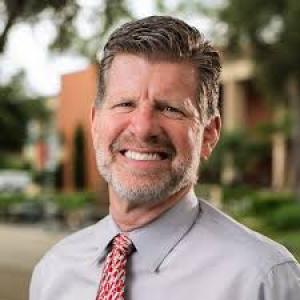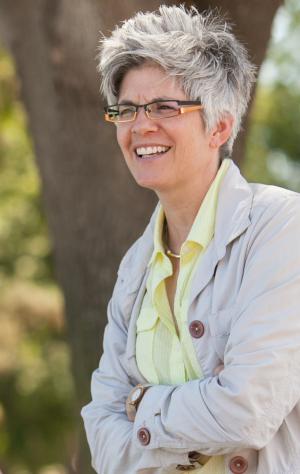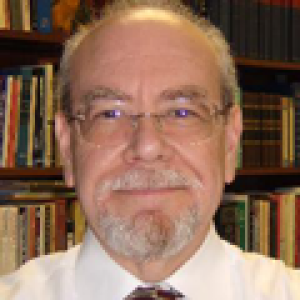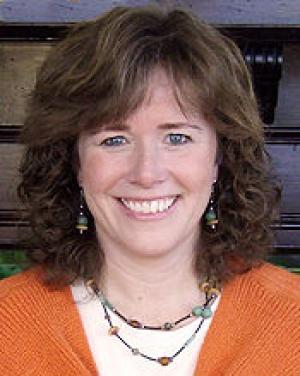Resources

I teach biblical/theological studies. Each semester, I seek to guide students toward a deeper understanding of my conclusions concerning the major theological points of the Old Testament. I teach them that, as a result of sin, the world in which we live is not the world as God created it to be. The world is “broken.” However, the amazing story of the Old Testament shows us that God, despite the sinfulness of humanity, is making a way for humanity to be reconciled to him. The brokenness of this world is the primary reason we find difficulty present in our lives on such a regular basis. The story of the Old Testament teaches us that God uses these various kinds of difficulties to command humanity’s attention so that they turn their hearts toward him in dependence. My desire as a professor of the Old Testament is to find real connections to my students’ lives so that the Old Testament is not viewed as merely an ancient book, which has no real value to their contemporary world. And every semester, it is a battle because most of them are simply not old enough, nor do they have the life experiences that are sufficient enough, to lead them to more deeply understand the powerful truths of the Old Testament. Outside of the minor irritations of life, the majority of the freshmen or sophomore students in my courses lack that which would lead them to truly understand the theological points I am trying to make and, therefore, they can lack an interest in making the necessary connections. They still feel a little invincible and at the top of their game. Enter our global pandemic. I could not ask for a better “soft ball” to be thrown at me. It is a perfect scenario for the teachings of the Old Testament to come alive. This global pandemic has created the opportunity to openly discuss the issues confronting our world, and even the issues that confront my students, with the goal of connecting all of it to the profound theology of the Old Testament. Every situation this global pandemic brings into their lives becomes a special opportunity for them to understand the deeper realities of living in this world as we know it and all of its subsequent difficulties. Even if it does not touch their own lives in meaningful ways, they are bombarded with constant news updating them on the tragedies that other people in this world are up against. They feel it. And they are moved by it. As numerous emotional stories flow through various information platforms, it has an impact on them, making them more prepared to listen . . . and to think. So, my responsibility as a professor is to take full advantage of a crisis that I could not have planned. For my teaching, it is truly the “perfect storm” for the application of my course content. With the emergence of this global pandemic, my class is more interested in engaging the focus of my teaching. And they will be the better for it. Of course, this causes me to reflect on what might be less obvious in the everyday events of our world, which, if properly utilized, could create the same opportunity for my students to impacted. Perhaps, as a teacher, I have grown somewhat lazy in my attempts to connect the dots for my students. This has led me to think more deeply about the way I approach my course lectures. Consider the many issues that potentially confront my students on a daily basis: • At a private Christian liberal arts university, costing around $40,000 per year, this may not be an issue for my students, but one cannot help but be aware of the persons who have made a bus stop their home or walk down the street pushing their shopping cart full of their life’s possessions or who scrounge around restaurant trash cans in search of food. • Sex or human trafficking. It is difficult to believe that either sex or human trafficking could be happening in our neighbor’s home across the street or in an apartment complex in close proximity to our home, but it is possible. These “invisible” people may be closer than we think. It is a horrible issue in our world, and we can put it out of our minds. • Drug/alcohol abuse. More people will die of drug abuse in the USA than will die of this global pandemic in the year 2020. Drug abuse wrecks families, tears apart marriages, and leads to financial ruin. Students have more than likely seen the impact of this issue in one way or another. My point is that, although these issues may not directly impact my students’ lives, the global pandemic might not either. But, unlike the global pandemic, these other issues exist continuously in the world which my students and I inhabit. Oftentimes, these issues become background noise to our comfortable little worlds, but they are there. My job as a teacher is to work harder to make these connecting points when my students might be having difficulty making connection on their own. Because of this, I am thankful for the global pandemic. I know that my subject matter, the theology of the Old Testament, made it fairly easy for me to make the connections between course content and this global pandemic, but I assume that, with a little bit of thinking, you can do the same. And, if you do, it will make your course content come alive and your students will be better able to draw value from the content of your course. And, if we can do it with a global pandemic, then I bet we can do it better in the situations of everyday life. I encourage you to go for it!

The previous blog in this series focused on “long shot” (“big picture”) editing, specifically, revision tasks related to changing scenes and cutting. This final blog in the series zooms in to “medium-shot” and “close-up” editing. I realize that not all preachers have time to focus on revisions every week. While I cannot offer extra time, I can offer recommendations from filmmakers to preachers who have only 30 or 45 minutes to revise their sermon prior to Sunday morning. Medium-Shot Revisions Choose one major move/section of the sermon and focus on setting the scene with vivid language that sparks a variety of senses. The preacher does this by first visualizing the scene and providing a “thick description.” Filmmakers can be helpful guides since they make hundreds of choices in order to provide scenes that create the desired impact on the viewers. Looking carefully at their craft can hone the preacher’s skills for description. Try this exercise: Choose a scene from a favorite film. Press pause and write your responses to the following questions. Where is the scene? How do you know? What objects appear in the scene? What details give you clues about the characters in the scene? What is the major color scheme in the scene? What mood does it create? What do you think happened just prior to this scene and what is likely to happen after? What in the scene involves your hearing? your sense of smell? Now go back to the major move in the sermon and describe your scene using the same prompts. This process helps you visualize the scene so that you can describe it in a way that helps your hearers visualize it . . . without a screen. Writer Janet Burroway summarizes this well: “The first requisite of effective setting is to know it fully, to experience it mentally; and the second is to create it through significant detail.”[1] One caveat: refrain from getting carried away with details that don’t actually advance the main trajectory of the sermon. In other words, not everything from the exercise will appear in the sermon. Keep only those descriptors that move you to the next section. Close-Up Revisions We now zoom in on individual phrases and words. The art of choosing just the right word is not lost on the preacher. In fact, sometimes we agonize over just the right word. I would like to recommend that preachers spend time on the particular phrases that serve as transitions from one major move (section) to the other. Once again, films can assist. Take a segment of the film you engaged above and watch the film until you’ve identified two to three scene changes. Once you’ve done that, take a closer look at the transitions themselves. How does the filmmaker guide us from one scene to the next? Are there hints in the previous scene that we will be moving to a new scene? Or, is the scene change abrupt? If so, why? What effect does an abrupt scene change have on a viewer? Once you’ve engaged the transitions in the film, return to your sermon draft to analyze its transitions using similar questions. The first step is to make sure that there are transitions. Second, identify the roles the transitions play. In his book, The Witness of Preaching, homiletician Tom Long suggests that connectors (his word for transitions) accomplish four communication tasks: provide closure for previous segment indicate how upcoming section is related to previous anticipate the content of the next section helps listeners adopt a stance Finally, be creative and not clichéd. There are common transitions that belong specifically to the genre of sermons, for example, “In today’s gospel reading . . .” You’ve heard it. You’ve said it. But why not be more creative, especially since when you begin to talk about Peter, we know you are referring to the section of scripture that was just read. Instead, if you are transitioning from a contemporary story to something that happened with Jesus and disciples, try this: “We weren’t the first to be in awe of Jesus’ capacity to calm the treacherous seas of life. The disciples saw it first-hand . . .” Again, while I cannot gift preachers extra time, I hope these recommendations, gleaned from the wisdom of filmmakers and their work on the screen, might at least offer some editing possibilities if and when preachers find they have extra moments once they’ve got their “rough cut” on the page. [1] Janet Burroway, Imaginative Writing: The Elements of Craft (147).
School campuses and classrooms have become ghost towns. What has the pandemic crisis done to all of education. Crisis is calling us to think creatively about the need for communal epistemologies. Dr. Nancy Lynne Westfield hosts Dr. Kenneth Ngwa (Drew Theological School).

When I talk to people about dialogical learning, they often reply, "Yes, we have great discussions in my class." But discussion and dialogue, as learning methods, are different things. And then there's conversation. Conversation too can be a sound learning method in formal theological education. Conversation Theory, developed by Gordon Pask, originated from his work in cybernetics and attempts to explain learning in both living organisms and machines. Pask's fundamental idea was that learning occurs through conversations about a subject matter make knowledge explicit. Conversations can be conducted at a number of different levels: natural language (general discussion), object languages (for discussing the subject matter), and metalanguages (for talking about learning/language). In order for conversation to facilitate learning, Pask argued that the subject matter you are teaching should be represented in the form of entailment structures, that is, showing the relationship between two sentences where the truth of one (A) requires the truth of the other (B). The critical method of learning when using conversation theory is "teachback" in which one person teaches another what they have learned. According to Pask there are two different types of learning strategies in conversation: serialists who progress through an entailment structure in a sequential fashion (as in a story narrative structure), and holists who look for higher order relations. The suitability of Conversation theory to theological education is self-evident. Conversation theory, for example, is applicable in a formal theological education context as a process for learning in supervised ministry. Through directed conversations students learn from their experience, and from peers, as they interact to make explicit what they are learning in their ministerial contexts. Conversation theory is a suitable process for the integration of concepts learned in the academic context (the classroom with a subject-matter focus) and their praxis in the supervision context. Conversation theory can be applied to solicit deeper and explicit learning from an immersion experience in a different cultural context. The three pedagogical principles in conversation theory are: To learn a subject matter, students must learn the relationships among the concepts. Explicit explanation or manipulation of the subject matter facilitates understanding (e.g., use of teachback technique). Individuals differ in their preferred manner of learning relationships (serialists versus holists). One advantage of the online asynchronous learning environment is that the conversation "slows down," and this allows the instructor time for analysis of student responses and fosters more intentional pedagogical responses that promote deeper dialogue and conversation. To learn more about conversation theory, see Gordon Pask, Conversation, Cognition, and Learning (New York: Elsevier, 1975).

Staying connected to students will be very important in the coming months–for their sense of well-being, for their academic success, and for their persistence. Managing student needs and expectations while teaching remotely can be more challenging than in the traditional classroom where students might catch you before or after class. Students might be in different time zones, have responsibilities that make it hard for them to participate in synchronous activities (in real time), or they may lack the technological capability necessary to connect. You will want to consider both synchronous and asynchronous options to make sure that all students have equitable access to your support. Asynchronous Options Despite the asynchronous nature of communication in many online courses, students often expect an immediate reply to their questions without considering the time of day they posted, or the possible complexity of the reply. One method for effectively addressing this concern is to clearly establish virtual office hours and a policy on when and how you will respond (e.g., within 24 hours). • Forums are a good way to respond to students if questions are relevant to more than one student and do not require confidentiality. On Canvas, you might occasionally post a discussion prompt such as “What questions do you have about the upcoming assignment?” You may just tell students that you will respond within a certain period of time. This reduces multiple email responses to the same question and also archives the questions and responses for later access. • Toward the end of a challenging unit, you might ask students to submit to you their “muddiest point”–what is it they still do not understand or are confused by. You could ask them to email you or answer anonymously through a Qualtrics survey. This allows you to respond in one post, video, or email to address the biggest challenges students are having with the material. • You can also ask students to post their questions about the material in a Google doc or discussion board in Canvas and let them respond to each other’s questions if they know the answers. This helps create connections and increases peer learning. In this strategy, you may want to wait to chime in until a pre-communicated period of time has passed so that you don’t inhibit participation. • Email can also work quite well, though you may want to designate a specific, consistent subject line (e.g., “Question about CHEM 100”) to keep track of the topics. You may be able to respond to the common questions or concerns at one time in a Q&A format. Synchronous Options Zoom, WebEx, and the good old-fashioned phone can work for real-time meetings. However, you will want to poll your students to determine possible times for everyone. • Synchronous office hours are sometimes an individual affair, but they also can be for groups when the focus is a need common to many students. This can be more fun and will save you a lot of time! In Zoom you have the option of setting up a waiting room where you invite students in one-by-one. You can have students make individual appointments with you, or in the case of a larger class, assign them to come in groups. You can also create “common concerns office hours” where all students can elect to join. • One way of determining common concerns: At the end of a virtual class, you can ask students to post their “muddiest point”using the whiteboard in Zoom or through Qualtrics to preserve anonymity. Or you can give them a few minutes to put their questions in the chat. You can then offer virtual office hours to respond to themes that emerge. You can also meet with groups about projects, conduct reviews before an exam, or host a drop-in Q&A–remember to record the session for those who can’t make it. • Providing a contact telephone number is another option, although instructors should clearly designate appropriate calling times, as well as how and when they will respond to voice mail messages. For some students, this might be their best way to join you. Students will often be working in the virtual classroom at all hours of the day or night, so maintaining clearly understood communication channels is essential for the ongoing success of the online course. Some additional things to plan for • The times during the semester when students will need more support, e.g., a week before an assignment is due or an exam will be held. • Whether you want students to drop in or schedule an appointment (in Zoom there is a virtual waiting room, and you can let a student or group of students in at their scheduled time)?
Students are asking questions about the pandemic, the messages of the Bible, and faith during crisis. What does it mean to teach the Bible in ways that recognize contemporary crisis and opportunity? Dr. Mitzi Smith (Columbia Theological Seminary) and Dr. Roger Nam (Portland Seminary) discuss their creative approaches to teaching biblical literature and interpretation during this pandemic.
What would it mean to face failures in education which are being laid bare in this moment of crisis? Risking the perilous questions could lead to prophetic imagination and moral renewal of church and society. Dr. Nancy Lynne Westfield hosts Dr. Katherine Turpin (Iliff School of Theology).

We’re in the middle of a pandemic with no clear end in sight. At the same time, many of us are taking a crash course in teaching online that we didn’t sign up for, and we’re handling it with varying degrees of success. Given all that, what should we focus on during the remaining weeks of our classes? Start by taking your students into account. How are they doing? I’m at a small, Catholic college, and I’m teaching required, first-year general education classes this semester. My students were OK for the first two weeks of online classes, but they seem worn out now. They tell me that their professors were understanding at first, but then they returned to business as normal, creating a pileup of papers and exams just as the students were getting more tired and discouraged. I didn’t like hearing that. For this semester, please, don’t worry about covering content and let’s lower our academic standards whenever it seems appropriate. Let’s focus on what our students need. So, what do our students need right now? Most important, they need our compassion and patience, and they need simple explanations of critical information. Even my stronger students are struggling to retain information because they are anxious, unfocused, and tired. Many of them worry needlessly and endlessly. One girl has asked me five times whether I’ll punish her for her intermittent Internet connectivity problems. I’ve reassured her repeatedly, but I suspect she’s still worried. And all that worrying is making her even more tired and less able to learn. I now spend the first few minutes of each class checking in, reassuring them, and reviewing basic information like course registration dates. With some trepidation, I promise that their other professors are reasonable people, and I coach them on how to talk to them. I use anonymous surveys to surface their concerns about their classes and the college. We discuss stress management and try to calm down. I’ve ordered all of them to take at least one full day off over Easter. I reassure, and explain again and again. I’ve lowered my academic expectations. When my students struggle with understanding basic instructions, it’s counterproductive to assign them long and difficult readings. So, I shorten the readings, and I use videos or pictures instead whenever possible. Comparing Michelangelo’s “Creation of Adam” to Harmonia Rosales’ reinterpretation, which presents God as a black woman, allowed us to discuss many of the same issues as the feminist reading I had on my syllabus. And dropping the reading made my students just grateful enough to engage with the images when I asked. I’m also revising the content of the last part of my course. As instructors in philosophy, theology, and religious studies, we are well positioned to have existential conversations with our students. After all, such questions are at the core of our disciplines! I’m focusing on questions at the intersection of my background and the current moment: Is happiness a choice, or do our circumstances determine whether we can be happy? What can we know and what should we do in the absence of certainty? Who do we trust? Why does God allow suffering? Does suffering make us better and stronger? How can religion be a source of strength? What about people who don’t believe in God? I’m inviting my students to draw on their experiences in their papers. They are crafting arguments about why God might allow the COVID-19 crisis and about how their experiences are making them stronger (or not). They are considering ways in which the burdens, yet again, fall disproportionally on some groups and asking how that might complicate the picture. They reflect upon how the crisis is affecting their own faith and on the possibility of staying happy and resilient in a crisis. I’m drawing on texts I’ve already read and questions I’ve thought about before. I’m too tired right now to invent anything new! Your version will be different, focusing on your questions rather than mine, using texts you’ve read, movies you’ve seen, and art that has moved you. Experiment. Invite the students into a conversation that uses your discipline to help make sense of their experiences right now. But don’t drive yourself crazy. If nothing comes to mind, stick to a gentler version of your original plan. Be kind to your students, but also to yourself.
A curated collection of reusable resources for teaching and research. Organized by keyword, each annotated artifact (teaching strategy) can be saved, shared, and downloaded.
In this time of liminality, listen for student needs and student requests about their own learning, curiosity and unique family situations. Consult with colleagues about teaching in ways previously unexplored. Dr. Nancy Lynne Westfield hosts Rolf Jacobson (Luther Seminary).